DERMANYSSUS GALLINAE
INTRODUCING THE CHALLENGE
POULTRY RED MITES
Unleash the power of Pulcap’s mechanical effect application to protect and lubricate caging equipment in the poultry industry. Pulcap suppresses infestations and provides extended efficacy that sets it apart from competitive products. Feel free to contact us for any needs regarding Pulcap application. Our dedicated team, equipped with expertise and experience, is ready to assist you with expert advice, on-site application, and support to ensure successful poultry red mite control on your farm.
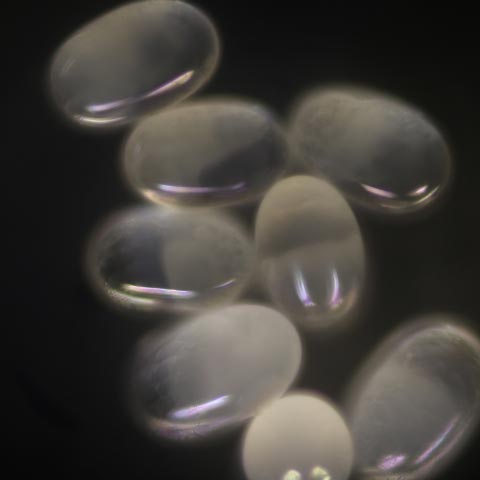
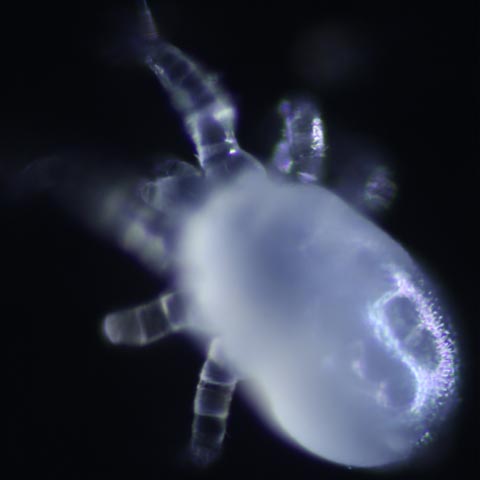
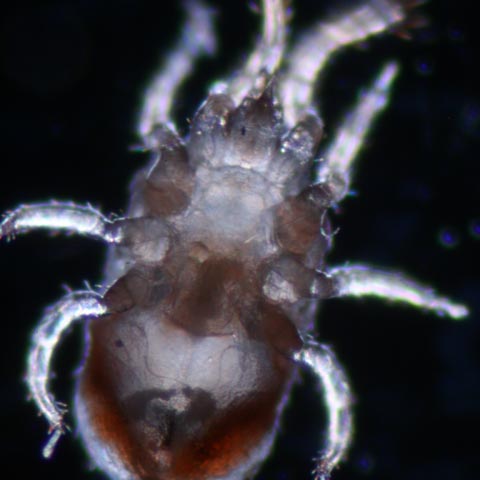
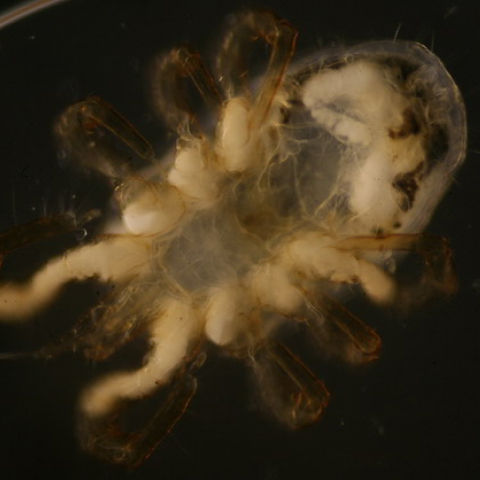
POULTRY RED MITES
THE STEALTHY INVADERS
Poultry red mites are masters of stealth, concealing themselves in the nooks and crannies of chicken coops, nesting boxes, and other hiding spots during the day. When night falls, they emerge hungry and eager to feed on unsuspecting hens. Their relentless attacks can lead to anemia, reduced egg production, weakened immune systems, and even death in severe infestations.
UNVEILING THE LIFECYCLE OF DERMANYSSUS GALLINAE
The life of a poultry red mite (Dermanyssus gallinae) is a captivating journey of metamorphosis and feeding habits. Starting as tiny larvae with only six legs, they emerge from eggs without feeding. Following the first molt, both nymphal stages and adults boast eight legs, ready to embark on their quest for sustenance.
Protonymphs, deutonymphs, and adult females are the greedy feeders, nourishing themselves on host blood. However, the males display a more relaxed approach and only occasionally indulge in a feeding session. When the opportune moment arises, these mites feast for short periods, lasting up to an hour, repeating this cycle every two to four days, often under the cloak of darkness.
The captivating transformation of Dermanyssus gallinae unfolds through one larval stage and two nymphal stages, culminating in adulthood within a remarkably swift timeframe. The entire development process, spanning from egg to adult, typically takes anywhere from 7 to 10 days, with some cases stretching up to two weeks.
Poultry houses create the ideal environment for red mite population growth. The temperature range of 10ºC to 35ºC and high relative humidity (>70%) provide the perfect breeding ground for reproduction and development, propelling these minuscule creatures on their relentless journey.
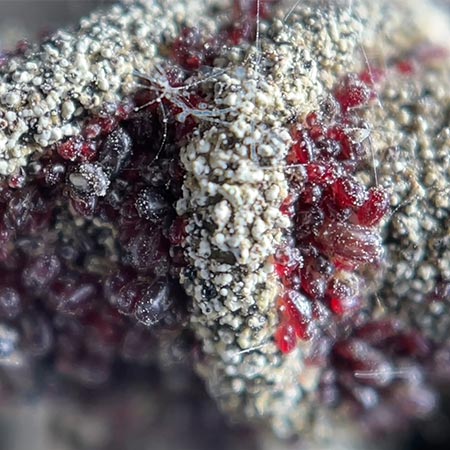
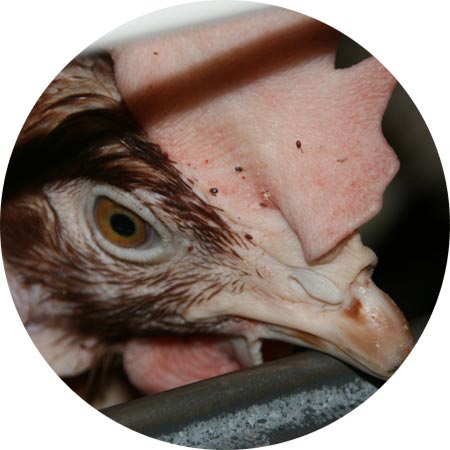
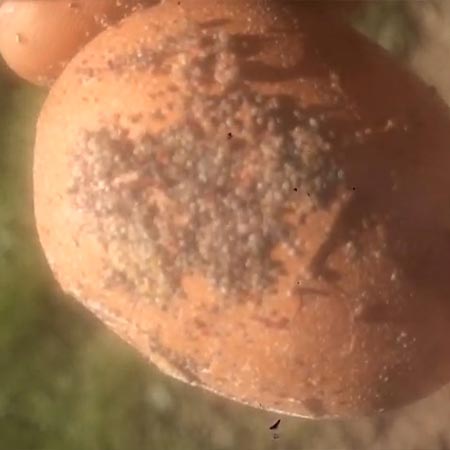
UNMASKING THE MENACE
THE DAMAGE CAUSED BY POULTRY RED MITES
Poultry red mites (Dermanyssus gallinae) may be tiny, but their impact on poultry flocks can be devastating. These stealthy parasites are nocturnal feeders, emerging at night to feast on their avian hosts’ blood. The damage caused by poultry red mites can lead to severe consequences for the birds and the egg farm’s productivity.
Anemia and Weakness: The continuous blood-sucking by red mites can lead to anemia in the birds. As the infestation progresses, affected hens become weak and lethargic, reducing their ability to lay eggs and affecting overall farm productivity.
Egg Production Decline: Stressed and weakened hens produce fewer eggs, leading to a decline in egg production. This can significantly impact the farm’s revenue and profitability.
Loss of Weight and Condition: Red mite infestations cause stress on the birds, leading to weight loss and a decline in overall body condition. In severe cases, this can result in higher mortality rates.
Feather Pecking and Cannibalism: As hens become restless due to discomfort from mite bites, they may engage in feather pecking or cannibalism, resulting in injuries and potential infections.
Transmission of Diseases: Poultry red mites can act as vectors for various diseases, further compromising the health of the flock and increasing the risk of disease outbreaks.
Economic Loss: The cumulative effects of reduced egg production, increased mortality, and veterinary expenses can lead to substantial economic losses for the egg farm.
Farm Worker Health Concerns: Red mites can also bite and irritate farm workers, potentially causing skin rashes and allergic reactions.
PULCAP EFFICIENCY
HIGHLY EXTREME CONDITIONS IN EGG PRODUCTION
In this video, you can find out how Pulcap’s product helps egg production farms in highly extreme conditions. Some farms can get to extremely difficult situations, where the costs caused by Poultry Red Mites can reach up to € 2.5 per each hen inhabited into facility. Such a problem occurred on this farm in Hungary.
Conventional Challenges and Health Concerns
The persistent nature of poultry red mites makes them a challenge to control, and conventional pesticides have been the primary line of defense for many farmers. However, the overuse of chemical agents raises concerns about environmental impact, health risks for farm workers, and the potential development of resistance in mite populations.
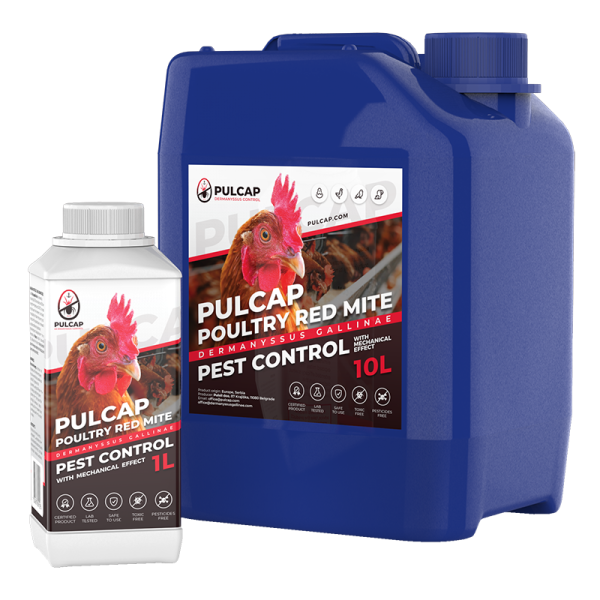
Embracing a Safer Solution
Amid these challenges, a revolutionary solution has emerged – Pulcap. Unlike traditional pesticides, Pulcap harnesses the power of mechanical action to combat poultry red mites effectively. Its unique approach creates an adverse environment for these pests while ensuring safety for both the flock and the environment.
Join the Fight Against Poultry Red Mites
At our company, we understand the profound impact that poultry red mites can have on your egg production and bottom line. With Pulcap, we’ve witnessed firsthand the transformation in our flock’s health and productivity. Join us in the fight against poultry red mites and discover a safer, more sustainable way to protect your poultry farm’s success.
Disclaimer: The information provided in this introduction is for general knowledge purposes. For specific advice on poultry red mite control, please consult a qualified veterinarian or pest control expert.
